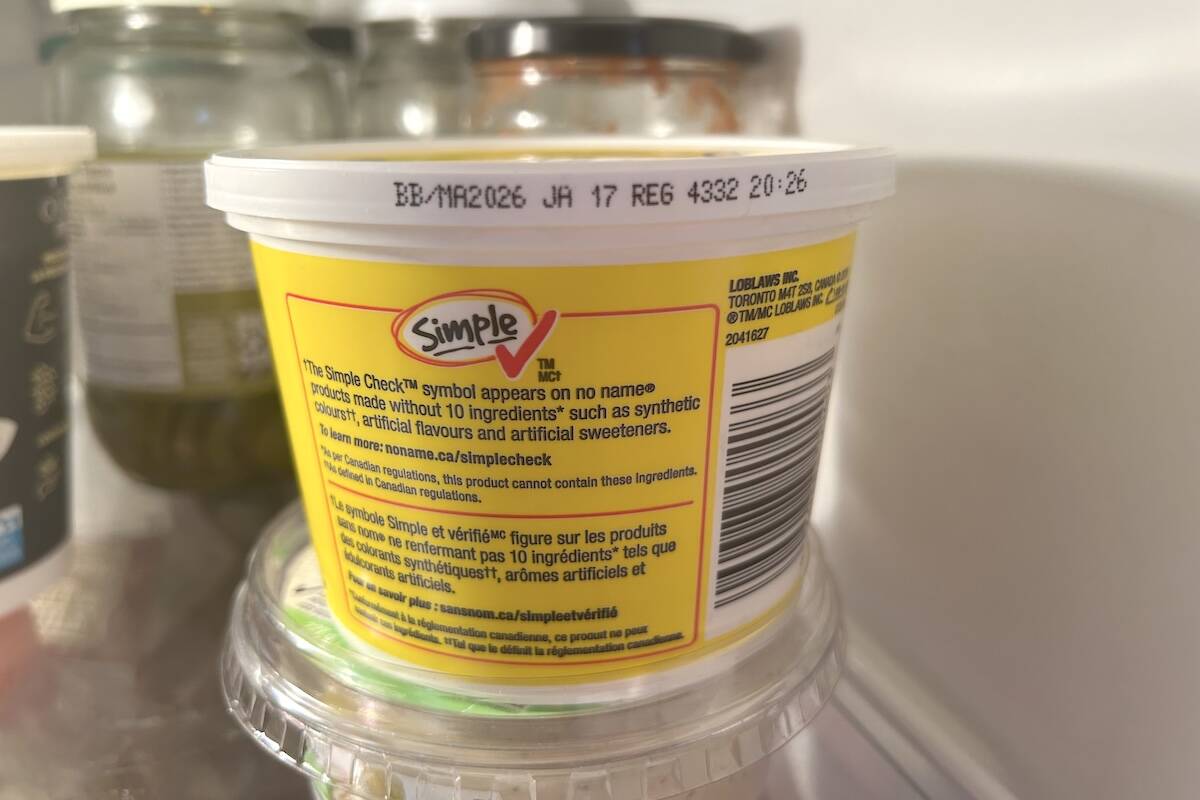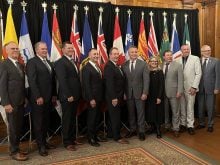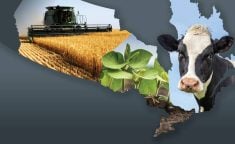Glacier FarmMedia – Farmers should build alliances with suburban voters if they want stronger political representation in the House of Commons, according to a leading pollster.
Darrell Bricker, global chief executive officer of Ipsos Public Affairs, told delegates of the Canadian Federation of Agriculture annual meeting in late February that suburban voters hold the greatest voting power.
“They decide every election now and increasingly will be a dominant voice,” he said during a panel on geopolitical issues.
Read Also

Best before doesn’t mean bad after
Best before dates are not expiry dates, and the confusion often leads to plenty of food waste.
Why it matters: Getting more voters in agriculture’s corner could turn lobby issues into policy action.
If an election were held tomorrow, the projected result “certainly isn’t painting the town red,” Bricker said in an interview.
Current polls project a Conservative majority. A federal election could be held at any time if the NDP no longer agrees to prop up the minority Liberals, but the regular electoral term would put an election on or before Oct. 20, 2025.
Bricker said farmers want governments to listen to them and consider them a priority. They don’t think those in power now do either of those things. Instead, he said, the government has a downtown agenda oriented toward climate change and how farmers should change.
Aligning with the suburbs could help farmers get their message across.
“Elections swing to the progressive side if the suburbs unite with downtown, and they swing to the conservative side if the suburbs unite with rural and small-town Canada. So, the swing vote is the suburbs; that’s what you need,” Bricker said.
Sheer numbers show rural Canada doesn’t have enough seats to swing an election on its own. Even holding farmer’s markets in suburban areas, rather than downtown in cities, could help educate voters about farming and rural issues, Bricker suggested.
Right now, residents in those areas are worried about the cost of living and housing. While the Liberals are somewhat addressing those, many voters consider those actions to be too little, too late, he said.
“We’re moving into what’s called a change election. Over 70 per cent of Canadian voters now feel that another party needs to be given a chance to govern the country. So, the government is really desperately trying to fight back against that.”
Hence the announcements on housing and affordability.
“The question is, will it be enough? And, at this point, it doesn’t seem to be.”
There also isn’t a lot of time left to persuade voters that the current government is paying attention, Bricker said.
Politician comments
CFA delegates also heard from federal politicians during the meeting.
Agriculture minister Lawrence MacAulay deferred to the finance minister when asked if he could ensure the interest-free portion of the Advance Payment Program stays at $350,000 rather than reverting to $100,000.
The program offers up to $1 million, and the interest-free portion rose in the last few years to deal with challenging circumstances such as the pandemic, extreme weather and global unrest.
“That helps. I used that when I was a farmer myself,” MacAulay said.
However, Ontario Federation of Agriculture delegate Ethan Wallace noted the $350,000 no longer applied.
“It is currently back to $100,000. Can you or your government commit to putting that limit back to the $350,000?” he asked.
MacAulay responded that, “Perhaps the government can. I can’t.”
He didn’t make farmers any promises, saying he would like to increase federal agriculture spending, but added the government can’t pay everything.
Delegates had earlier heard from Robert Bonnie, the U.S. Department of Agriculture’s undersecretary for farm production and conservation, who noted the US$19.5 billion over five years that the United States is spending on climate smart agriculture.
“I know the environmental programs are quite difficult at first, but quite simply, if you have massive storms … what we have to do is create some stability but also make sure we work with farmers,” MacAulay said.
“We can never provide everything you need, but I think with the Sustainable Agriculture Strategy, through the years we’ll hopefully work to make sure that farmers feel that they have a bigger input (in terms of costing).”
Bloc Quebecois agriculture critic Yves Perron said he didn’t know the $100,000 limit for advance payments was back in place.
“It has to be $350,000,” he said during his speech. “It has to be kept at that level.”
Conservative agriculture critic John Barlow said he was also unaware of the reversion until farm organizations began contacting him. He expressed doubt on whether the decision would be reversed in the upcoming budget.
Bill C-234
Delegates also raised Bill C-234 and asked speakers if they support the amended version of the bill, which leaves farm buildings and greenhouses out of any possible carbon price exemption, while maintaining the exemption for grain dryers.
Perron said his party supports passing the amended version because at least grain drying will be covered. The Conservatives and NDP prefer the original bill.
“We intend to reject the Senate amendments to it,” said NDP critic Alistair MacGregor, to audience applause.
However, with Bloc Quebecois support, the Liberal government could still pass the amended bill when the matter comes to a vote. The bill likely to pass as is, Barlow said, because there aren’t enough votes to reverse it.
“Our problem is we’re running out of time,” he said. “We could try and table another bill to bring in the heating and cooling of barns and the greenhouses, but there just isn’t enough time in this Parliament to get it passed.”
– Karen Briere is a reporter with The Western Producer.

















